SUMMARY
This is AI generated summarization, which may have errors. For context, always refer to the full article.
![[OPINION] How our young climate and biodiversity scientists can make a global impact](https://www.rappler.com/tachyon/2021/05/filipino-scientist-may-4-2021-sq.jpg)
This year, two important global environmental meetings are taking place. Early next month, the 26th Conference of the Parties (COP26) to the United Nations Framework Convention on Climate Change (UNFCCC) will be held in Glasgow, the United Kingdom. Less known but equally important is the 15th Conference of the Parties (COP15) to the United Nations Convention on Biological Diversity (UNCBD) that will take place in Kunming, China next week. They are being convened to address our existential challenges of climate change and biodiversity loss.
The Philippines is a state party to both conventions and their protocols. Engagement in these meetings – annually for the UNFCCC and biennially for the UNCBD – is very important to the country given its vulnerability to climate change and the ensuing loss of its biodiversity. Both environmental issues are regarded as collective action problems that necessitate both national and international cooperation.
Since the adoption of the UNFCCC and the UNCBD at the UN Conference on Environment and Development (UNCED) or the Earth Summit in 1992, we have seen active participation by Philippine officials and their advisers in these meetings. The UNFCCC and the UNCBD are supported by the output of scientific panels called the Intergovernmental Panel on Climate Change (IPCC) and the Intergovernmental Science-Policy Platform on Biodiversity and Ecosystem Services (IPBES), respectively, which provide policymakers with state-of-the art scientific assessments to guide their decision-making on climate and biodiversity action. The IPCC and IPBES are composed of scientists from all over the world and these scientific panels are opportunities for a new generation of young Filipino scientists, both those serving the Philippine government and those in Philippine universities, to contribute their scientific knowledge to global causes.
This year, the IPCC started the release of its Sixth Assessment Report (AR6) installments, starting with the Working Group I (WG I) or the Physical Science Basis of Climate Change. The WG I installment stated that, “It is unequivocal that human influence has warmed the atmosphere, ocean and land” and that “human-induced climate change is already affecting many weather and climate extremes in every region across the globe.” The AR6 provides the science to bolster country commitments to emissions reduction ahead of the COP26 in Glasgow.
Filipino scientists have long contributed to IPCC assessment reports and, as one of the most climate vulnerable countries, the Philippines have much practical and scientific knowledge to contribute to the IPCC; we, therefore, encourage Philippine universities, government agencies, and organizations to nominate more Filipino scientists – both established and early career – to the IPCC.
In a similar fashion, the Global Assessment Report on Biodiversity and Ecosystem Services released by IPBES in 2019 serves as impetus for a more ambitious post-2020 global biodiversity framework that will be negotiated and hopefully finalized at COP15 in Kunming next week. A few Filipinos have served as experts at IPBES, and just like in the IPCC, having our Filipino scientists contribute to the work of this scientific biodiversity panel not only brings Filipino local knowledge to a global stage but also provides an opportunity for Filipino scientists to work with and learn from some of the world’s best biodiversity scientists.
More exciting perhaps in the histories of both the IPBES and IPCC is what appears to be increasing convergence of these panels that have traditionally tackled the science of climate change and biodiversity independently. In December 2020, the first-ever collaboration between IPBES-IPCC was held in order to identify solutions to biodiversity loss and climate change, which are mutually-reinforcing and require systemic solutions. Interdisciplinary endeavours such as the joint IPBES-IPCC workshop provide opportunities for scientists to engage in systems thinking, which Filipino scientists could definitely contribute to as well as benefit from.
As a new generation of scientists emerge in the Philippines, we encourage a more proactive mentoring of early career researchers by established scientists, especially those with experience in participating in IPBES and IPCC and in attending meetings of multilateral environmental agreements. This not only ensures the continuity of Philippine science but also the representation of the country on global scientific stages. – Rappler.com
Denise Margaret Matias is a professor at the Eberswalde University for Sustainable Development in Germany and currently serves as a Fellow in the IPBES Thematic Assessment on Sustainable Use of Wild Species
Val Roque is a graduate student at SOAS University of London in the United Kingdom who follows the meetings of multilateral environmental treaties such as the UNFCCC and UNCBD
The authors’ views are their own. More information about IPBES and IPCC is available at www.ipbes.net at www.ipcc.ph, respectively. A starting point for early career researchers is to connect with senior academics listed in these sites.
Add a comment
How does this make you feel?








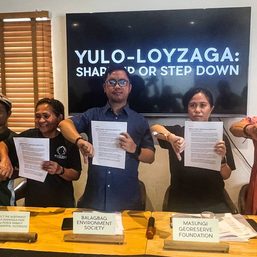



![[OPINION] Remembering RSP, Norman and Jessie – geoscientists for the people](https://www.rappler.com/tachyon/2024/04/raymundo-punongbayan-April-29-2024.jpg?resize=257%2C257&crop_strategy=attention)
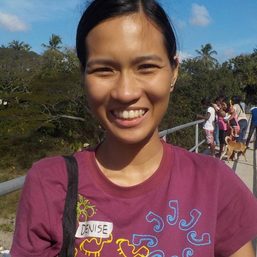

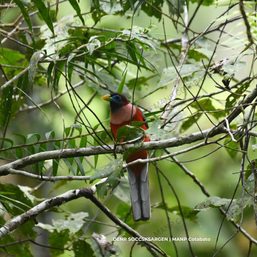
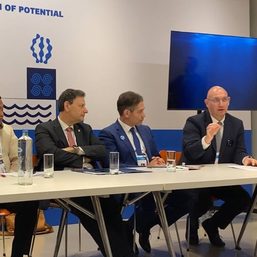
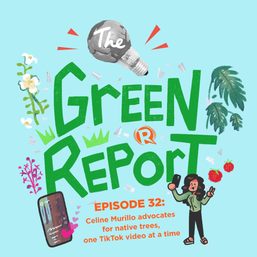
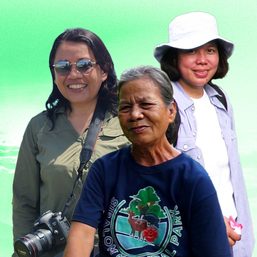
There are no comments yet. Add your comment to start the conversation.